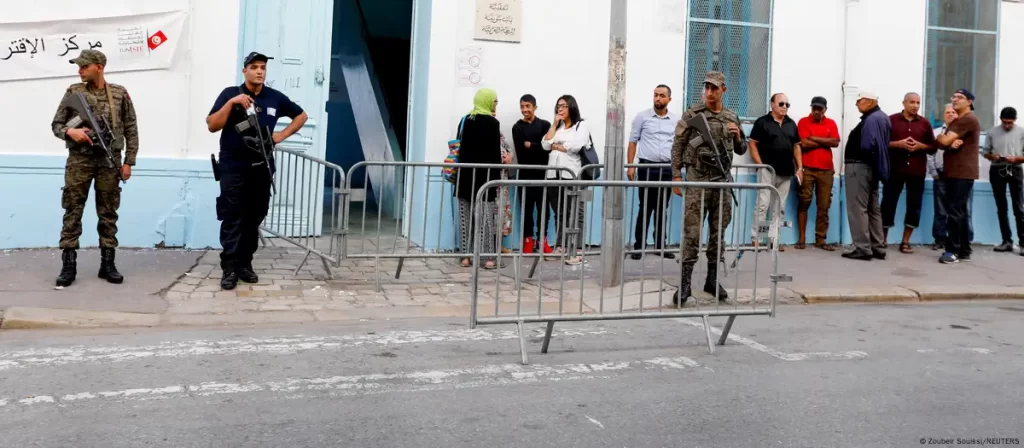Tunisians headed to the polls Sunday in a presidential election where incumbent Kais Saied faces only two opponents after more than 170 political figures were detained or barred from running.

The election comes as the North African nation grapples with economic turmoil and what critics call a severe reduction of democratic rights. Tunisia, once hailed as the Arab Spring’s sole democratic success story, has seen a dramatic shift under Saied’s rule.
“This election marks a critical juncture for Tunisia’s democracy,” said political analyst Fatima Bouslama. “The limited field of candidates raises serious questions about the fairness of the process.”
Saied, 66, who came to power in 2019, has reshaped Tunisia’s political landscape by shutting down parliament and rewriting the constitution, moves that opponents say have eroded democratic gains made since the 2011 revolution.
The president’s challengers include Zouhair Maghzaoui, leader of the Al-Chaab party and a former Saied ally turned critic, and Ayachi Zammel, a recently imprisoned leader of a small party who has seen a surge in popularity.
Many prominent opposition figures are either in jail or barred from running by an electoral commission handpicked by Saied. An independent court was also stripped of its power to adjudicate election disputes shortly before the vote.
The election is taking place against a backdrop of economic crisis, with Tunisia facing high inflation and unemployment rates. International financial institutions have expressed concern over the country’s economic trajectory.
As Tunisians cast their ballots, observers worry about low turnout and the implications of the election for the country’s democratic future. The results, expected in the coming days, will likely shape Tunisia’s political and economic landscape for years to come.


